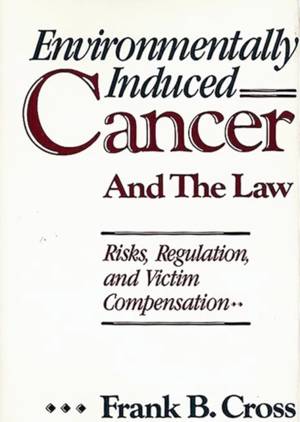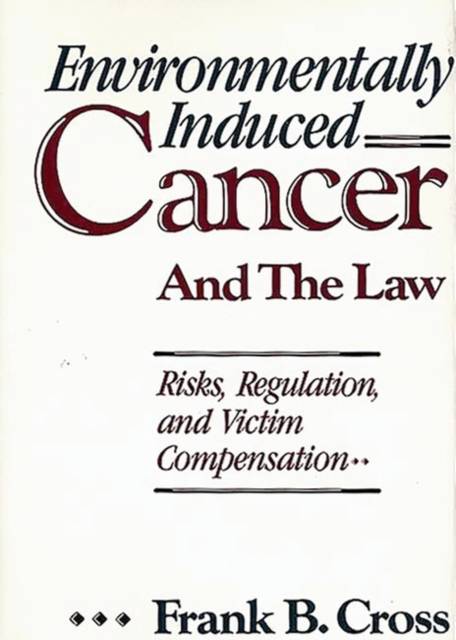
- Retrait gratuit dans votre magasin Club
- 7.000.000 titres dans notre catalogue
- Payer en toute sécurité
- Toujours un magasin près de chez vous
- Retrait gratuit dans votre magasin Club
- 7.000.000 titres dans notre catalogue
- Payer en toute sécurité
- Toujours un magasin près de chez vous
Environmentally Induced Cancer and the Law
Risks, Regulation, and Victim Compensation
Frank B Cross
Livre relié | Anglais
161,45 €
+ 322 points
Description
Frank Cross provides a comprehensive treatment of the widely feared problem of environmentally induced cancer. The author takes a threefold approach to the problem, first examining the cancers themselves and what is known about their causes and then exploring both the government's regulation of these environmental pollutants and the legal remedies available to victims of such cancers. Throughout, new proposals for regulating carcinogens and compensating the victims of environmental cancer are discussed.
In Part I, Cross addresses the significant and unique problems presented by the disease of cancer, demonstrating that the limits of scientific knowledge, the absence of a demonstrable safe threshold of exposure and other special features of the disease create a unique cancer problem for government. The second section examines the various risk-management approaches from which a regulatory agency may choose. As Cross demonstrates, government must identify carcinogens, assess the risks they present, and choose control methods--a complex task made even more difficult by the conflicting claims of industry and environmental groups. He concludes this section by proposing future approaches for more effective regulation, including prioritization of the greatest hazards and adoption of a moderate, feasibility-based control program. The final chapters explore legal obstacles to victim compensation and argue for fundamental changes in existing common law doctrines to enhance the ability of victim/plaintiffs to recover adequate damages.Spécifications
Parties prenantes
- Auteur(s) :
- Editeur:
Contenu
- Nombre de pages :
- 244
- Langue:
- Anglais
Caractéristiques
- EAN:
- 9780899303895
- Date de parution :
- 12-06-89
- Format:
- Livre relié
- Format numérique:
- Genaaid
- Dimensions :
- 164 mm x 243 mm
- Poids :
- 557 g







